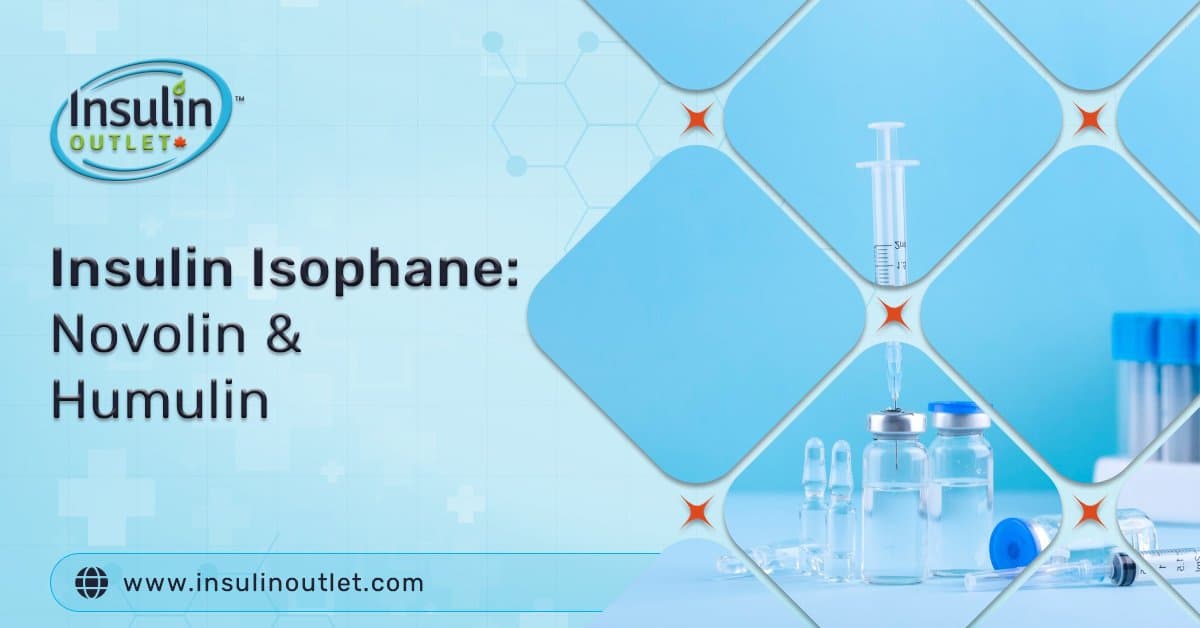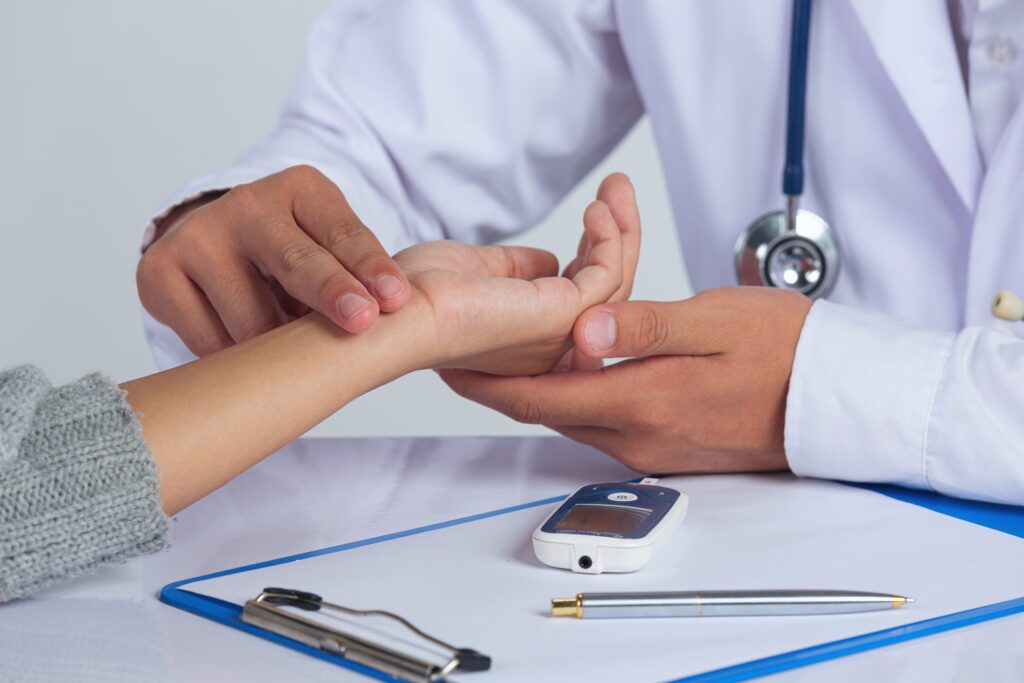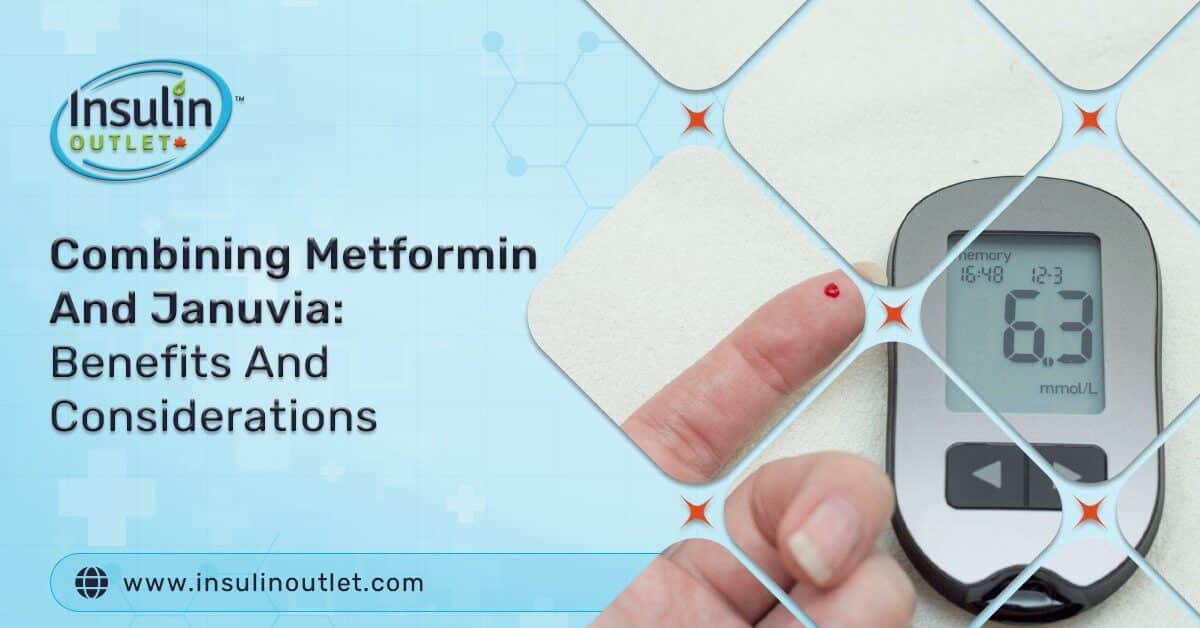
High blood sugar can cause various health problems for diabetics, including an impact on sexual performance, nerve problems, blindness, and kidney damage. Insulin isophane (Novolin and Humulin) can be effective in controlling high blood sugar levels.
In addition, insulin isophane usage can also be beneficial in lessening the risk of a stroke or a heart attack.
If you are an insulin user or plan to start taking it, it would be a good idea to get familiar with the medication. However, you should make an appointment with your doctor and discuss the possible usage of the product and see if it can help manage your diabetes.
Table Of Contents
Toggle- What is Insulin Isophane?
- Humulin N KwikPens (100 Units/mL)
- Humulin 70/30 Vial 100 Units / ml
What is Insulin Isophane?
Insulin isophane is an artificial insulin product. People with diabetes use it as a replacement for insulin, which the human body naturally produces. It is considered an intermediately acting insulin or isophane. The insulin begins working approximately 1.5 hours after being administered.
Isophane can be slow to react at first, but it lasts longer than natural insulin. This insulin also works by aiding glucose, or blood sugar, to enter cells. That, in turn, facilitates your body to use glucose for energy.
Often, insulin isophane gets combined with shorter insulin to produce the desired results sooner. It is important for diabetics to understand the different kinds of insulin (such as Humalog and Humulin) and how to differentiate amongst them. Apart from that, insulin isophane can be paired with other substances like metformin or oral diabetic drugs. It can also be used alone if required.
There have been recent debates if long-lasting analogues are better than isophane, but there has been no concluded outcome.
What are the Types of Insulin Isophane?
Humulin and Novolin are two of the more common brands that administer Insulin isophane. Humulin N Kwikpen is a prefilled pen that holds 100/ml for quick and simple usage. Novolin has many different products, including their 30/70 vials.
What Precautions Should be Taken Before Using Insulin Isophane?
Insulin isophane medication needs to be prescribed to you by a health care provider or doctor. When discussing the possibility of taking insulin isophane, please be very open and straightforward with your doctor. Let them know of any supplements, prescriptions, over-the-counter medicines, vitamins, minerals, and herbal substitutions you are taking. Be sure to mention any allergies, as insulin isophane could have active ingredients that can cause an allergic reaction. Discuss with your healthcare provider or doctor any hypoglycemia episodes, vision complications, family history, medical history, or if you are pregnant (or actively trying) or breastfeeding. It is imperative to go over any and every detail of your lifestyle with the doctor, so they can make the proper recommendations in managing your diabetes.

How to use Insulin Isophane
Insulin Outlet will provide you with a leaflet that will contain all the necessary information. You need to make sure to read the pamphlet from end to end before you start using it.
If you require further assistance with more inquires and questions, you would have to consult a diabetes educator or your doctor for further clarifications. The product packaging contains all the usage instructions already, but you should also consult with a health care professional or your doctor to be on the safe side. You can also call Insulin Outlet and speak with one of their friendly pharmacists.
How to Administer Insulin Isophane
- Roll the insulin cartridge or vial gently.
- Turn it to the right side first, and then upside down. Please repeat this step 10 times so that the medication mixes itself properly.
- Clean your injection needle before you inject a dose. It would help if you did this by cleaning alcohol on a cloth and rubbing it on the needle.
- Change the position of your arm or intended body part for each successive insulin dose after the first one. It serves to lessen problems or risks like thickened skin, lumps, or pits.
- Insert the injection in an area below the skin. It can be either once or even twice a day as per your health care professional’s instructions. The usual regions suitable for injecting insulin are the upper arm, buttocks, thighs, or stomach.
- After you have injected yourself, take care not to rub that area accidentally.
- You should only inject insulin in your body that is kept at room temperature.
6 Things to Avoid When Using Insulin Isophane
When using insulin isophane, it is also necessary to keep a list of things you should not do. They are as follows:
- Please make sure that you do not shake the container at any point while taking it. Our products come in sealed, cooled containers to ensure your insulin is not altered through our shipping process.
- The insulin isophane is supposed to look evenly milky or cloudy. Keep a check on the product’s appearance for any discoloration or presence of particles stuck to the sides. If you find either of these two are in the vial, stop using it instantly. It goes the same if the product starts looking a bit frosty or accumulates into white clumps.
- You should never inject insulin into a muscle or vein. It may lead to hypoglycemia or an occurrence of very low sugar in the blood.
- You must make sure that no insulin goes into your body that is not room temperature preserved. Cold insulin especially should be avoided at all costs as it can be excruciating.
- Do not share the injection pen or syringe. If you are using a syringe, ensure you are discarding the syringe after use.
- Due to the low blood sugar, it would be best to avoid driving or operating machinery until you fully understand and experience how insulin will affect you.

Missed Dose & Overdose
Please try your best to ensure you do not miss a dose. Your doctor will discuss your daily schedule for injection and the importance of sticking with it. Be sure to ask your doctor what to do in case you do miss a dose. Do not make up for the missed dose by double dosing. If you overdose on insulin isophane, you must seek emergency medical attention immediately. Insulin overdose should be taken very seriously as it can lead to life-threatening symptoms.
Side Effects of Insulin Isophane
Taking insulin Isophane can lead to specific side effects like irritation, redness, and pain. All of these are very normal reactions. But if the effects worsen or persist for long, you would have to consult your doctor or nearest healthcare facility.
Some of the significant symptoms that can be a cause for worry include:
– Low blood sugar or worse, hypoglycemia
– A fall in blood potassium levels, which can include irregular heartbeat, weakness, and muscle cramps
– Dizziness, blurred vision, and tingling feet or hands
Most of these reactions tend to take place if your body lacks sufficient amounts of calories. At times, intense workouts can also cause these problems.
At these times, it would be beneficial to have reliable forms of glucose with you at all times. It can be anything that can raise blood sugar levels rapidly, like honey, non-diet soda, table sugar apart from the conventional glucose tablets or gel.
Storing Insulin Isophane
Vials:
Humulin N vials should be refrigerated between 36 and 46 degrees F or at room temperature below 86 degrees F. Maintain the opened vial at room temperature below 86 degrees F. If you store Humulin N Vials at room temperature, please discard the medication after 31 days.
Novolin N vials should be refrigerated between 36 and 46 degrees F, or at room temperature below 277 degrees F. Do not refrigerate opened Novolin N Vials and freeze the insulin vial. If you do store Novolin N Vials at room temperature, please discard the medication after 42 days.
Do not put insulin vials inside the freezer or use if the insulin vials that have been frozen. Protect the insulin vials from light and any keep away from any excessive heat. Please read the package carefully and indicate the expiration date. If the insulin’s expiration has passed, please discard it.
Pens:
Unopened Humulin N KwikPens and Novolin N FlexPens should be refrigerated between 36 and 46 degrees F or remain at room temperature below approximately 86 degrees F. Both pens should be stored at 86 degrees F while in use.
Humulin N Kwikpens should be discarded after 14 days if stored at room temperature, while Novolin N Flexpens should be discarded after 28 days.
Do not refrigerate or freeze the pens after usage and ensure they are kept away from heat and light. Read the packages carefully and indicate the expiration date for the pen. If you notice that the expiration date has passed, please discard the pen. The same storage instructions should be used for cartridges.
Where to Find Affordable Humulin and Novolin Insulin
Thousands of American diabetics have felt the financial burden that insulin can take on their finances. Insulin Outlet is a trusted prescription fulfilment service that allows American diabetics to buy insulin online from Canada. The service was created to fight the rising prices of insulin in the United States. Find affordable Humulin and Novolin insulin through Insulin Outlet.
Final Words
This article is attended to help you get acquainted with everything you need to know about insulin isophane and its properties. Its purpose was to deliver a quick overview of one of the many insulins available for people with diabetes. Please note, this article should not be taken as medical advice, and any changes to your medication, diet, or lifestyle should be discussed with your healthcare provider or doctor. Also, insulin is just one part of maintaining diabetes. Diet, exercise, weight control, testing, and special care are other portions that every person with diabetes should monitor when managing diabetes.
Share:












